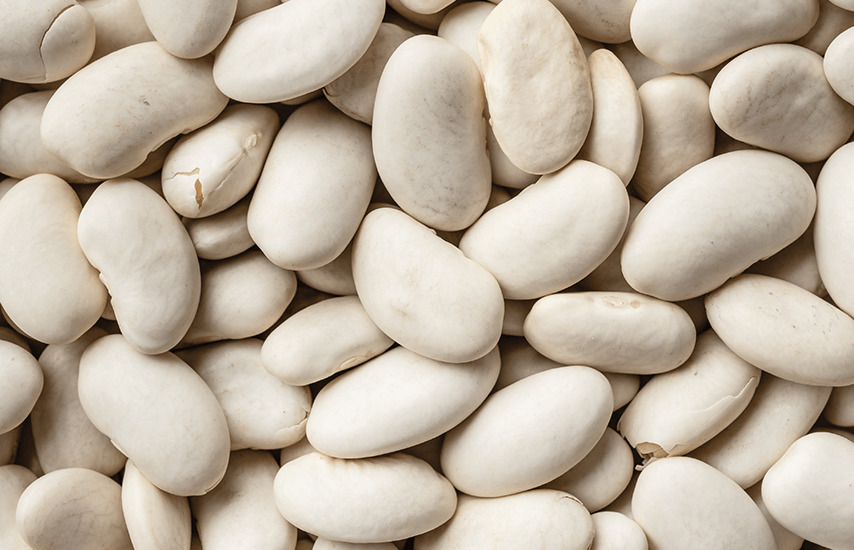Lectins: Introduction and Benefits

In the ever-evolving world of nutrition and health, lectins have sparked a significant amount of interest and debate. Often found in a variety of foods, lectins have been linked to both health concerns and benefits. This article will delve into what lectins are, foods high in lectins, their impact on digestion, the concept of a lectin-free diet, and the overall health effects of lectins. By understanding lectins, we can better navigate our dietary choices and their implications on our health.
What Are Lectins?
Lectins are a type of protein found in many plants, particularly in grains and legumes. They’re known as carbohydrate binding proteins because they can bind to cell membranes in the digestive system. Lectins serve a natural protective function for plants but can have various effects on human health when consumed.
- Types of lectins. There are several types of lectins, with some being more harmful than others. For example, the lectins in raw or undercooked kidney beans can be toxic, whereas other lectins found in foods like tomatoes or brussels sprouts are generally considered safe.
- Lectins and anti-nutrients. Lectins are often categorized as anti-nutrients because they can interfere with the absorption of essential nutrients. This interference can impact the nutritional value of the foods containing them.
- Lectin activity in foods. The lectin activity in foods can vary. For instance, raw beans have higher levels of active lectins compared to cooked beans. Cooking, soaking, and fermenting are methods used to reduce lectins in foods.
Understanding the nature of lectins and their presence in various foods is the first step in assessing their role in our diet and overall health.
Foods High in Lectins
Lectins are abundant in a variety of everyday foods, particularly in plant-based sources. Being aware of lectin-rich foods is crucial for those considering a lectin-aware diet.
Grains and legumes. Staples like wheat, rice, kidney beans, and soybeans are significant sources of dietary lectins. Kidney beans, in particular, contain a type of lectin that can be harmful if consumed raw or undercooked.
Nightshades. This family of plants includes vegetables like tomatoes, potatoes, eggplants, and brussels sprouts, all known for their lectin content. These lectin-rich foods can be a concern for some individuals sensitive to lectins.
Nuts and seeds. Although they are packed with nutrients, some nuts and seeds also have a considerable amount of lectins.
Dairy products. Dairy products may contain lectins, as these can be present due to the animal’s diet.
Proper preparation, such as cooking and fermenting, can significantly reduce the lectin content in these foods, making them safer and more digestible.
Lectins and Digestion
Lectins’ interaction with the human digestive system can be a double-edged sword, offering both potential health benefits and concerns.
Digestive tract interaction. Lectins can bind to the cells lining the digestive system, potentially leading to digestive discomfort and nutrient absorption issues. This interaction is particularly notable in lectin-rich foods like raw legumes and certain grains.
Autoimmune diseases and lectins. There is a growing body of research exploring the link between dietary lectins and diseases such as celiac disease and rheumatoid arthritis. The concern is that certain lectins might contribute to intestinal permeability or leaky gut syndrome, potentially exacerbating these conditions.
Immune system response. Lectins may stimulate an immune response, particularly in individuals with a predisposition to autoimmune diseases. While lectins can be beneficial in small amounts, overconsumption or consumption by sensitive individuals may lead to adverse health effects.
Understanding how lectins interact with the digestive system and immune system is essential, especially for those with specific health conditions or digestive sensitivities.
Lectin-Free Diet
The concept of a lectin-free diet has gained popularity as a way to address various health concerns related to the consumption of lectins. This dietary approach involves eliminating or significantly reducing foods that are high in lectins from one’s diet. Here’s an in-depth look at the lectin-free diet, its potential benefits, and the challenges it may present:
- What it entails: A lectin-free diet typically excludes most grains and legumes, certain vegetables like nightshades, and dairy products, as these are considered high lectin foods. The diet focuses on consuming foods low in lectins, such as leafy greens, certain non-nightshade vegetables, and animal proteins.
- Popularity reasons: This diet has become popular partly due to claims that it can reduce inflammation, aid in weight loss, and improve overall digestive health. Some proponents also argue that this diet can benefit individuals with autoimmune issues, like rheumatoid arthritis, by reducing immune system triggers.
- Potential benefits: Those who follow a lectin-free diet often report improvements in digestive issues, reduced symptoms of autoimmune conditions, and enhanced energy levels. The diet’s emphasis on fresh, unprocessed foods can also contribute to a generally healthier eating pattern.
- Challenges: However, adopting a lectin-free diet can be challenging as it requires strict dietary restrictions and the elimination of many nutrient-rich foods. This can lead to a lack of dietary diversity and potential nutrient deficiencies if not carefully managed.
- Balanced approach: For those considering a lectin-free diet, it’s essential to ensure they still receive a balanced intake of nutrients. Consulting with a healthcare provider or a dietitian can help in planning a diet that meets nutritional needs while addressing concerns about lectins.
- Scientific perspective: While some anecdotal evidence supports the benefits of a lectin-free diet, more scientific research is needed to fully understand its long-term effects and efficacy. It’s important to weigh the potential benefits against the drawbacks and consider individual health needs and conditions.
In conclusion, while a lectin-free diet might offer certain health advantages for some, especially those with specific sensitivities or conditions, it’s crucial to approach it with a well-informed and balanced perspective. Understanding one’s own health and nutritional requirements is key to determining if this diet is a suitable choice.
Health Effects of Lectins
The health effects of lectins in the diet are a topic of considerable debate and ongoing research. Understanding the impact of these proteins on our bodies is crucial for making informed dietary choices.
- Digestive system concerns. Lectins can resist digestion and bind to the cells lining the digestive tract. This can sometimes lead to digestive discomfort and may affect the absorption of nutrients. In some individuals, especially those with a sensitivity to lectins, this can exacerbate conditions like irritable bowel syndrome or contribute to digestive problems.
- Potential for autoimmune reactions. There is a theory that certain lectins might cause an autoimmune response in predisposed individuals, potentially contributing to diseases like rheumatoid arthritis or celiac disease. However, scientific evidence in this area is still developing, and more research is needed to understand the connection fully.
- Lectins and chronic diseases. Some studies suggest that excessive consumption of lectins may be linked to the development of several chronic diseases, including cardiovascular disease. Lectins may impact the immune system and inflammatory processes in the body, though the extent of these effects varies significantly among different people.
- Nutritional considerations. While lectins are often labeled as anti nutrients, it’s important to remember that lectin-containing foods like whole grains, legumes, and certain vegetables are also rich in essential nutrients and offer various benefits. The key is to consume these foods in a balanced manner and prepare them properly to minimize potential negative effects.
- Context of overall diet. The role of lectins should be considered in the broader context of an individual’s entire diet and health profile. For most people, the health benefits of eating a diverse range of plant-based foods likely outweigh the potential harm from lectins.
While lectins can have certain adverse effects, especially in sensitive individuals or when consumed in large amounts, they are also a part of many nutritious foods. Balancing the intake of lectins with proper food preparation and a varied diet is crucial for maintaining good health.

Conclusion
As we conclude our exploration of lectins, it’s clear that these proteins, found in a wide array of eating foods, play a complex role in our diet and health. Plant lectins are ubiquitous in nature, and their interactions within the human body can have both beneficial and challenging effects.
Eating lectins in moderate amounts as part of a varied diet is a normal part of human consumption. These active lectins can be found in many staples, including grains, legumes, and certain vegetables. It’s important to recognize that while lectins have been the subject of concern in certain health circles, they are also an intrinsic part of many nutritious foods that have been consumed safely by humans for millennia.
One aspect of lectins that has attracted scientific interest is their ability to bind to red blood cells. This binding property is why some lectins are used in biochemical research for blood typing and other cellular studies. However, in the context of diet, this characteristic underscores the importance of proper food preparation to neutralize potentially harmful effects.
While plant lectins are a natural part of many diets, their impact can vary based on factors like individual sensitivity, the amount and type of lectins consumed, and food preparation methods. Eating lectins doesn’t inherently pose a health risk, especially when part of a balanced diet that includes a variety of eating foods. Understanding lectins and their effects is an important part of making informed dietary choices and maintaining a balanced approach to nutrition.
Sources
https://www.sciencedirect.com/science/article/abs/pii/S0959440X99000342
https://journals.lww.com/joro/Fulltext/2012/04010/Biological_role_of_lectins__A_review.6.aspx
https://amosinstitute.com/blog/what-are-lectins-and-the-lectin-free-diet/
https://www.liebertpub.com/doi/abs/10.1089/act.2020.29286.klu?journalCode=act
Related articles






